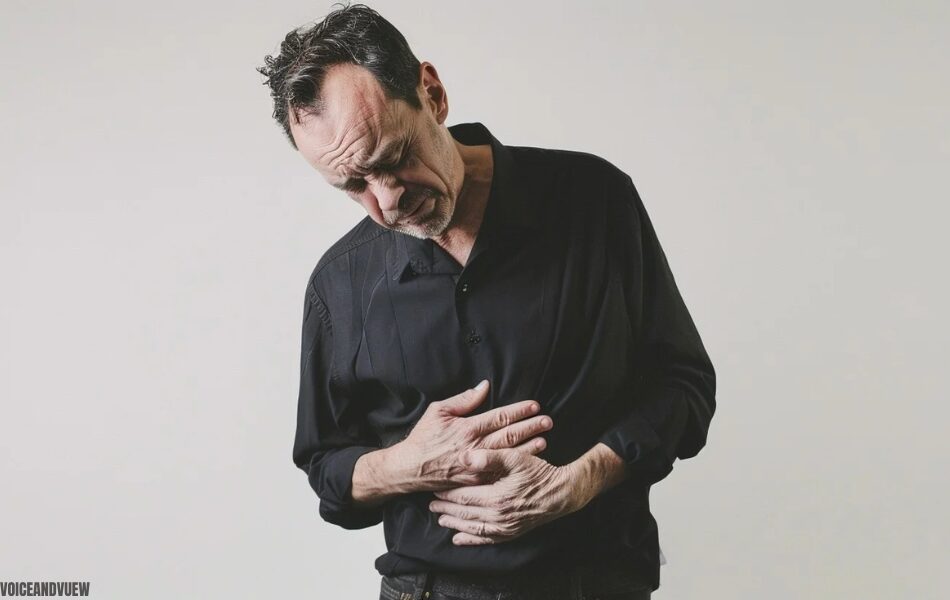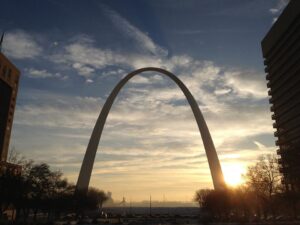Can I Sue for Astrovirus from Hardees in Virginia?

If you’ve recently experienced symptoms of astrovirus after dining at Hardee’s in Virginia, you may be wondering “can i sue for astrovirus from hardees in virginia?”. Astrovirus, a highly contagious virus that causes gastroenteritis, often results from consuming contaminated food, making dining establishments like Hardee’s a possible source of infection if food safety protocols are not followed. Experiencing a foodborne illness like astrovirus can be both physically exhausting and financially draining, leaving many affected individuals looking for ways to seek justice and hold the responsible parties accountable.
Understanding your legal rights in food poisoning cases is crucial, especially when considering the complexities of proving liability and connecting the illness to a particular meal or location. For those impacted, navigating the legal options available may seem daunting, but it is essential to know that Virginia law provides avenues for food poisoning victims to potentially pursue compensation. These laws address restaurant responsibility, covering aspects like negligence and strict liability when patrons are harmed due to unsanitary food handling practices or contaminated food products.
In this article, we will break down the legal steps for pursuing a lawsuit for astrovirus contracted from Hardee’s in Virginia. We’ll cover what it takes to prove your case, including the specific types of evidence needed, the importance of seeking medical treatment, and the role of health authorities in investigating foodborne illness incidents. Additionally, we’ll discuss what types of compensation may be available and why consulting a food poisoning attorney can make a significant difference in achieving a successful outcome. By the end, you’ll have a comprehensive understanding of your options, enabling you to make informed decisions if you decide to seek compensation for your experience.
Contents
What is Astrovirus?
Astrovirus is a common viral pathogen known for causing gastroenteritis, an inflammation of the stomach and intestines that leads to uncomfortable symptoms like nausea, vomiting, and diarrhea. Astrovirus is particularly prevalent in settings where food may be improperly handled or where sanitation protocols are lacking, making it a concern for diners who rely on restaurants to ensure safe and hygienic food practices. It is spread through the fecal-oral route, often entering the body via contaminated food, water, or surfaces. Once ingested, astrovirus can quickly lead to infection, particularly in environments where the virus can thrive due to lapses in cleanliness and food safety measures.
The symptoms of an astrovirus infection generally begin within one to four days after exposure. Many individuals experience nausea, abdominal pain, diarrhea, and sometimes mild fever. While the symptoms are often considered less severe compared to other foodborne viruses, the discomfort and disruption caused by astrovirus can still be significant, especially for individuals with weakened immune systems, the elderly, or young children, who may experience prolonged symptoms. For most, the illness lasts only a few days, but it can leave lasting fatigue and dehydration, which may require medical intervention.
Astrovirus contamination in food establishments often results from lapses in basic hygiene and sanitation practices. If food handlers fail to wash their hands properly or if surfaces and kitchen tools are not sanitized, the virus can easily spread to food products. In restaurants, cross-contamination can occur when raw ingredients come into contact with ready-to-eat food items or when infected workers unknowingly transfer the virus to surfaces and food.
Given the high turnover and fast-paced environment of many food establishments, maintaining strict hygiene protocols can be challenging, which sometimes leads to instances of foodborne illness outbreaks. By understanding how astrovirus spreads and its sources, individuals can better assess their legal options if they believe their infection stemmed from dining at a restaurant like Hardee’s in Virginia
Can I Sue for Astrovirus from Hardees in Virginia
If you contracted astrovirus after dining at Hardee’s in Virginia, you may have grounds to sue the restaurant for damages. Food poisoning cases can be challenging to pursue legally, but under certain circumstances, establishments can be held responsible when customers fall ill due to contaminated food. Restaurants have a duty to provide food that is safe and properly handled, and when this duty is violated, it opens the door for legal action. To hold Hardee’s accountable for an astrovirus infection, you must understand the elements of liability and how Virginia law addresses foodborne illnesses.
In food poisoning cases, liability typically arises when a restaurant fails to meet standard health and safety protocols, leading to contaminated food being served to customers. The legal concept here involves both negligence and strict liability, depending on the specifics of the case. For example, if improper hygiene, cross-contamination, or inadequate cooking procedures result in astrovirus contamination, Hardee’s could be liable for the resulting illnesses. Establishments are required to uphold strict food safety standards, and failure to do so can be grounds for a lawsuit. This includes regular cleaning, employee training on hygiene, and proper food storage.
Virginia’s laws regarding foodborne illnesses further support consumers’ rights, particularly through consumer protection laws that mandate food sold to the public must meet specific safety standards. If Hardee’s did not follow these protocols, and customers suffered as a result, the establishment could face legal consequences.
What Virginia Law Says About Foodborne Illness Liability
Virginia law holds food establishments to a high standard when it comes to protecting public health. Under Virginia’s food safety regulations, restaurants must adhere to health codes designed to prevent contamination and the spread of pathogens like astrovirus. If Hardee’s or its employees fail to comply with these regulations, they can be held liable for resulting foodborne illnesses. Virginia also has consumer protection laws that reinforce restaurant accountability for food safety. Restaurants are expected to meet the same level of care that a reasonable person would expect in terms of cleanliness, handling, and preparation of food. If these standards are not met, affected individuals may have a case for legal recourse.
The Virginia Department of Health also plays a critical role in foodborne illness cases, as it can conduct investigations into outbreaks linked to specific restaurants. If the health department has records of multiple customers contracting astrovirus after dining at a particular Hardee’s location, this evidence can strengthen the case, showing a pattern of negligence in food handling practices.
The Basis for a Food Poisoning Lawsuit: Negligence and Strict Liability
A lawsuit for food poisoning, including astrovirus cases from Hardee’s in Virginia, typically rests on the concepts of negligence and strict liability. Negligence occurs when the restaurant fails to uphold basic safety standards. In the case of Hardee’s, negligence might involve employees not following proper handwashing practices, improper cleaning of surfaces, or not cooking food to safe temperatures. Any of these failures could lead to an astrovirus contamination incident, and if they can be documented, they can support a negligence claim.
Strict liability, on the other hand, holds the establishment accountable simply for selling contaminated food, regardless of fault. Under strict liability, if it is proven that the food served was contaminated and caused illness, the restaurant can be held liable without having to show intent or direct negligence. This is particularly helpful in cases where proving specific acts of negligence is difficult, but the presence of a foodborne pathogen, like astrovirus, is confirmed. Given that food sold by restaurants is expected to be safe for consumption, strict liability provides additional protection to consumers, ensuring that they have legal recourse even when pinpointing fault is challenging.
Understanding these legal grounds and how they apply to foodborne illnesses in Virginia can help determine Can I Sue for Astrovirus from Hardees in Virginia. Both negligence and strict liability can form a solid basis for a food poisoning lawsuit, making it possible for those affected to pursue justice and compensation.
Factors Affecting the Compensation Amount
Several factors influence the amount of compensation you may receive in a lawsuit for astrovirus infection in Virginia. The severity of your illness plays a critical role; those who experience more severe symptoms or complications will likely receive higher compensation than individuals with milder cases. The length of time you suffered symptoms and the extent of your recovery can also impact the total damages claimed.
The cost of treatment is another significant factor. If your medical expenses were extensive, this would naturally lead to a higher compensation claim. This includes not only the immediate costs associated with treatment but also any ongoing medical care required to manage long-term effects.
The overall impact of the illness on your daily life is also crucial in determining compensation. If the astrovirus infection resulted in a significant decline in your quality of life, limitations in your daily activities, or psychological distress, these factors can lead to a larger compensation amount. Furthermore, the level of negligence demonstrated by Hardee’s is key. If evidence shows a clear pattern of disregard for food safety protocols, this could warrant a higher compensation claim, especially if it can be demonstrated that this negligence directly contributed to your illness.
In conclusion, if you are contemplating legal action for astrovirus contracted at Hardee’s in Virginia, understanding the types of damages available and the factors affecting compensation is essential. This knowledge can help you gauge the potential outcomes of your lawsuit and set realistic expectations as you navigate the legal process. Pursuing compensation not only addresses the financial burdens incurred due to the illness but also seeks to hold responsible parties accountable for their actions, ultimately promoting a safer dining experience for all consumers.
Conclusion
In conclusion, if you’ve contracted astrovirus after dining at Hardee’s in Virginia, you have options to seek justice and hold the establishment accountable. Foodborne illnesses can disrupt lives, bringing financial strain and health complications that are often preventable. By understanding your legal rights and the basis for food poisoning claims under Virginia law, you can make informed decisions about pursuing compensation. Consulting an experienced attorney can strengthen your case, guiding you through the evidence-gathering process, addressing health department findings, and navigating Virginia’s liability laws. Taking action not only aids your recovery but also plays a role in reinforcing food safety standards, encouraging higher accountability among dining establishments, and contributing to a safer dining experience for everyone.





